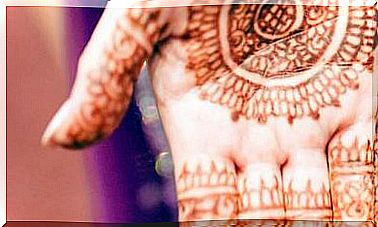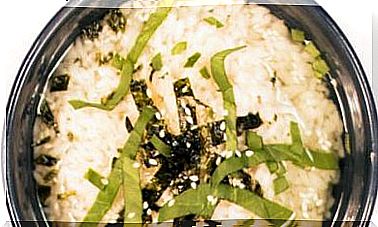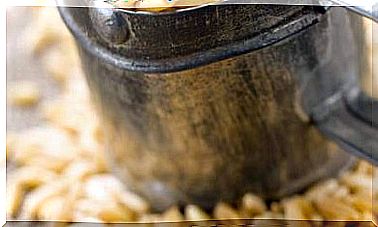Homeopaths Respond To The Minister Of Health
Doctors and associations of homeopathic and naturopathic doctors respond to the attacks received from Carmen Montón, Minister of Health, Consumer Affairs and Welfare.

“We are going to make it clear that homeopathy does not have scientific evidence, that it is not science and that it does not cure”, declared the new Minister of Health, Consumption and Well-being, Carmen Montón, to eldiario.es. Homeopathy professionals answer that there is scientific evidence, therefore it is science and a cure.
In the interview to the digital medium directed by Ignacio Escolar, Minister Montón was willing to carry out her policy against homeopathy with “the room for maneuver” allowed by European regulations.
Homeopathy professionals defend the efficacy of their medicine
The minister has repeated the usual mantra against homeopathy among skeptical groups: there is no scientific evidence to prove its effectiveness. Medical graduates and homeopaths disagree.
Dr. Gonzalo Fernández Quiroga, spokesman for the National Assembly of Homeopathy, which groups together medical, veterinary and pharmaceutical societies that use homeopathy in Spain, explained to Cuerpomente that “there is sufficient scientific evidence on the specific effects of homeopathic active principles , beyond the placebo effect, which confirm its therapeutic interest and for public health “.
In the same sense, the Spanish Association of Naturopathic Doctors, chaired by Dr. Rafael Torres, recalled in a tweet that “in PubMed (one of the main databases on medical studies) there are more than 6,500 bibliographic references with studies on homeopathy of different types: laboratory, clinical, observational, epidemiological … “
But does this number of studies prove efficacy or discredit homeopathy? Dr. Gualberto Díaz, specialist in Family and Community Medicine and professor of homeopathy, goes to the Cochrane reviews, very prestigious among the defenders of “evidence medicine”, and finds that there are at least 2 rigorous reviews with aspects favorable to homeopathy only among those translated into Spanish:
- Oscillococcinum®, homeopathic medicine for the prevention and treatment of influenza and flu-like illnesses.
- Homeopathic medicines for the adverse effects of cancer treatment
These two favorable studies are extremely rigorous, but there are many more that demonstrate the usefulness of homeopathy.
The CORE-HOM database, managed by the Homeopathy Research Institute, contains more than 1,000 clinical trials. Selecting the strictest ones, around 40% observe beneficial effects (the figure is similar when conventional drugs are analyzed).
A test method that is not suited to homeopathy
Critics of homeopathy discredit most of the favorable studies because they do not follow the “randomized controlled trial” methodology, tailored to conventional pharmacology, but not homeopathy. No wonder critics have a hard time finding studies that support homeopathy in this way.
In fact, if the harshness applied to homeopathy were directed to routine practice in primary care, we would find that 82% of conventional treatments do not have sufficient scientific justification, according to a study cited by Dr. Díaz.
It is difficult to prove the efficacy of conventional and homeopathic medicines with the same methodology, since the former are administered against specific symptoms and the evolution is observed in a group of people, while in the homeopathic consultation a medicine can be used to treat different symptoms. This is why homeopaths say they treat people, not symptoms or illnesses.
Homeopathic Medicines Are Safe And Helpful
In practice, for a physician who is well trained in conventional medicine and has experience with homeopathy, homeopathic medicine often becomes the best option with a high safety profile.
As a consequence, the efficacy of homeopathic medicines would not have to be tested, but rather from consultation. In the absence of better studies, the success of a professional or the satisfaction of patients is by far the most reliable proof of its effectiveness.
According to reports from the European Union, one in every 3 citizens has used it at some time and the surveys carried out indicate an average satisfaction level of 70%. It is a very high level considering that many patients come to homeopathy dissatisfied with conventional treatments.
You go to the homeopath for efficacy – why else could it be? – and also for a matter of personal freedom. “The patients, once informed, have (we) the right to complement the treatments with what is in accordance with our preferences, as stated in one of the assumptions of ‘evidence-based medicine'”, says Dr. Fernández Quiroga .
The legal issue surrounding homeopathic medicine
Minister Montón affirms that she will act against homeopathy with the margin allowed by European laws. It is a narrow margin. It is precisely a European directive from 2001 that has forced the Spanish government to clearly regulate homeopathic medicines.
Last April, the predecessor of Montón (PSOE), Minister Dolors Montserrat (PP), approved a ministerial order to regulate the registration, approval and marketing processes exclusively in pharmacies of homeopathic medicines. In this way your safety is guaranteed.
According to these European and national regulations, homeopathic medicines that request to declare a therapeutic indication must present the necessary studies on their effects, like any other medicine.
And homeopathic medicines without therapeutic indication will be presented as such and will be prepared as up to now, in accordance with the protocols established by the European Pharmacopoeia or the Royal Spanish Pharmacopoeia, which guarantee their safety.
This legal framework allows Spanish doctors to resort to homeopathy whenever they want. This is what the 2,500-3,000 Spanish doctors with training in homeopathy do legitimately and regularly , and the 10,000 who occasionally prescribe homeopathic medicines.
Practicing homeopathy is also legal
If homeopathic medicines are fully legal, the practice of homeopathy is too. It is 22 years ago that the Collegiate Medical Organization signed a document that is still in force and that regulated the practice of acupuncture, homeopathy and naturopathic medicine by qualified doctors.
For the WTO, homeopathy is a “medical act”, that is, it is part of what a health professional can prescribe in his office, based on his acquired scientific knowledge and clinical experience.
González Quiroga insists that “homeopathic medicines are by law here and in Europe. In fact, in some advanced countries around us such as France, Germany or Switzerland they are incorporated into their public health systems.”
“Furthermore,” he adds, “they are very well tolerated and compatible with conventional drugs. We believe that their exclusive dispensing in pharmacies is a guarantee of safety for the doctors who prescribe them, as well as for the patients.”
According to WHO
European and national standards allow homeopathy to be a possibility for health care. A policy against this option would be to go against international trends and the World Health Organization guidelines.
The WHO strategic report for the period 2014-2023 says that “both patients and health care providers are demanding the revitalization of health services and emphasizing individualized person-centered care. “
“This includes – continues the report – the expansion of access to products, practices and professionals of Traditional and Complementary Medicines” [anthroposophic medicine, chiropractic, homeopathy, naturopathy and osteopathy, among others].









